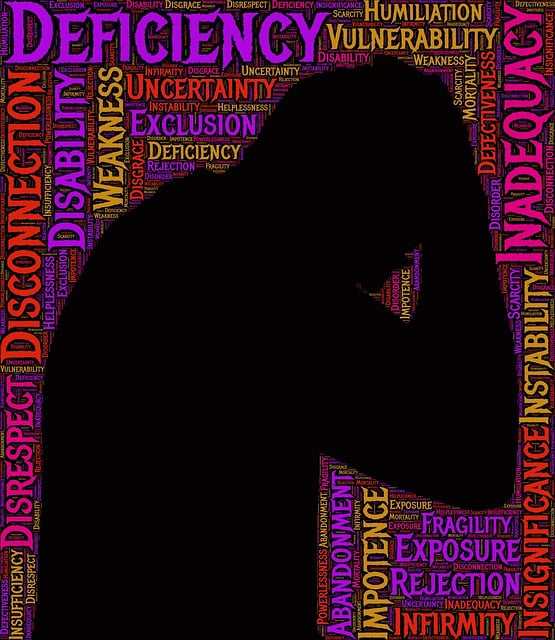Mental health advocacy, exemplified by Longmont Bilingual Therapy, is crucial in raising awareness and breaking down stigma through tailored therapy services in multiple languages, addressing gaps in care for diverse communities. By combining self-awareness exercises, cultural competency training, educational workshops, digital engagement, and rigorous evaluation, they foster inclusivity, enhance understanding, and improve mental health outcomes, especially for Latino and Asian populations, ultimately strengthening community resilience.
Mental health advocacy plays a pivotal role in fostering inclusive communities. This article explores initiatives like Longmont Bilingual Therapy, delving into its impact on Longmont’s diverse population. We examine gaps in mental healthcare and propose strategies for effective advocacy. By focusing on measurable outcomes, we highlight the long-term effects of such programs and chart future directions to ensure sustainable change. Understanding and amplifying mental health advocacy efforts are crucial steps towards a more supportive community for all.
- Understanding Mental Health Advocacy: The Role of Longmont Bilingual Therapy
- Identifying Gaps and Populations in Need: A Focus on Longmont's Diverse Community
- Strategies for Effective Mental Health Advocacy Initiatives
- Measuring Impact and Building Sustainable Change: Longterm Effects and Future Directions
Understanding Mental Health Advocacy: The Role of Longmont Bilingual Therapy

Mental health advocacy is a powerful tool to raise awareness and promote understanding about various mental health issues. It plays a crucial role in breaking down stigma, encouraging open conversations, and providing support to those facing challenges. Longmont Bilingual Therapy serves as an exemplary initiative in this domain, focusing on empowering individuals through therapy tailored to their linguistic needs. By offering services in multiple languages, they ensure accessibility and comfort for a diverse range of clients.
This approach is particularly beneficial for immigrant communities or those who speak different languages, often facing barriers in accessing mental health resources. Longmont Bilingual Therapy facilitates effective communication, allowing clients to express their feelings and concerns freely. Through specialized therapy sessions, they address not only individual mental health needs but also foster cultural sensitivity. This holistic method includes teaching valuable skills such as mood management techniques, promoting self-care routine development for better mental health, and even imparting conflict resolution techniques, all tailored to the unique linguistic and cultural backgrounds of their clientele.
Identifying Gaps and Populations in Need: A Focus on Longmont's Diverse Community

In Longmont’s diverse community, identifying gaps in mental health services is a crucial step toward advocating for better care. The city’s population comprises various cultural backgrounds and linguistic groups, with a significant portion speaking languages other than English. This presents both opportunities and challenges when it comes to addressing mental health concerns. One notable gap is the lack of accessible bilingual therapy options, hindering non-English speakers from receiving timely and effective treatment.
By focusing on these unmet needs, Longmont can foster a more inclusive and supportive environment. Implementing self-awareness exercises tailored to different cultural contexts can enhance understanding among mental health professionals. Moreover, organizing healthcare provider cultural competency training sessions is essential for bridging communication barriers and ensuring that all residents have access to quality care. These initiatives will not only benefit the Latino or Asian populations but also contribute to a more comprehensive and effective risk assessment strategy for the entire community.
Strategies for Effective Mental Health Advocacy Initiatives

Effective mental health advocacy initiatives require a multifaceted approach to ensure comprehensive support for individuals seeking care. One key strategy involves community engagement, where organizations like Longmont Bilingual Therapy can play a pivotal role by hosting educational workshops and awareness campaigns. These events not only break down stigma but also equip participants with practical tools for enhancing mental wellness. Incorporating techniques such as mindfulness meditation and stress management strategies into these initiatives has proven to be highly beneficial.
Additionally, advocacy groups should leverage digital platforms to reach a wider audience. Online resources, including social media campaigns and informative blogs, can help dispel myths about mental health while offering valuable insights on managing various conditions. By combining in-person interactions with digital engagement, Longmont Bilingual Therapy can create a supportive ecosystem that encourages open conversations about mental health and fosters better overall well-being.
Measuring Impact and Building Sustainable Change: Longterm Effects and Future Directions

Measuring the impact of mental health advocacy initiatives is crucial for understanding their long-term effects and driving sustainable change. By utilizing robust evaluation methods, organizations like Longmont Bilingual Therapy can assess the success of their programs in promoting emotional well-being and boosting confidence among participants. This data-driven approach allows for continuous improvement and ensures that resources are allocated effectively to address the evolving needs of the community.
Looking ahead, the future of mental health advocacy lies in integrating diverse strategies such as Emotional Well-being Promotion Techniques and Mental Wellness Coaching Programs Development. By combining evidence-based practices with innovative approaches, initiatives can create lasting impact and foster a culture where mental wellness is prioritized. This holistic approach, tailored to meet the unique needs of diverse populations, holds the key to revolutionizing mental health support and enhancing the overall resilience of communities.
Mental health advocacy initiatives, as exemplified by the work of Longmont Bilingual Therapy, play a pivotal role in addressing critical gaps within communities, particularly those with diverse populations. By understanding the unique needs and barriers faced by various groups, these initiatives can develop effective strategies to promote mental wellness. Measuring impact over time is essential for building sustainable change and ensuring that advocacy efforts remain relevant and beneficial. As we move forward, learning from successful models like Longmont Bilingual Therapy will be key to fostering inclusive and resilient communities across the board.













